Our fellows
The sixth round of heatflow.fellowships have been awarded in spring 2025. The submission deadline for round 7 is the 1st of September 2025. You can submit proposals at any time.
Round 7:

Will you be the next?
Apply for the fellowship
Round 7, deadline: 01 September 2025
Round 6:
In March 2025, we received eight applications from India, Egypt, Mexico, four were awarded and accepted

Luis Ángel Vega Ramírez
Mexico
E-Mail
Round 6 (07/2025-01/2026; at GFZ, MARUM, Germany, Sorbonne, Paris, France)
https://orcid.org/0000-0002-3067-6891
Luis Ángel Vega Ramírez is a postdoctoral researcher at the Universidad Autónoma de Baja California (UABC), Mexico. He holds a Ph.D. and an M.Sc. in Earth Sciences from CICESE and a B.Sc. in Geosciences. His current research uses high-resolution bathymetry and machine learning techniques to quantify tectonic deformation and heat flow in transtensional settings and their correlation with hydrothermal activity. He's interested in artificial intelligence and high-performance computing applied to geoscientific data.

Reham Rafat
Egypt
E-Mail
Round 6 (07/2025-09/2025; at NRIAG)
https://orcid.org/0009-0008-1049-3220
Reham Raafat is a geoscientist based in Cairo, Egypt, with a strong interest in the intersection of petroleum systems and geothermal energy. She earned her B.Sc. in Petroleum and Mining Geology from Tanta University in 2022 and completed her pre-Master’s in Petroleum Geoscience at Alexandria University in 2024, where she is currently pursuing her M.Sc. Her research interests focus on heat flow, basin analysis, and the integration of geological and geophysical methods to understand subsurface systems. She is particularly interested in the geothermal potential of sedimentary basins and petroleum reservoirs. With a commitment to sustainable energy, she aims to bridge petroleum geoscience and geothermal research to support future energy transitions. Reham’s academic work includes graduation projects on geomorphological feature detection using remote sensing, and petroleum system analysis in Egypt’s Western Desert. She has also gained hands-on experience through training in reservoir modeling, seismic inversion, and asset evaluation, participating in programs such as the Al Amal Program, SEG Field Camp, and SPE Egypt's Industry Simulation Program. In addition to her technical work, she actively contributes to geoscience outreach through conferences and events, including EGYPES and SEG Egypt activities

Sandeep Kumar Prajapati
India
E-Mail
Round 6 (07/2025-09/2025; at GFZ, Germany)
Sandeep Kumar Prajapati, a Ph.D. scholar at AcSIR and CSIR-NGRI, Hyderabad, India. He holds a Master of Science (Tech) degree in Geophysics from Banaras Hindu University, Varanasi, India. His research specialises in geothermal studies, focusing on heat flow, rock thermal properties, and lithospheric thermal structure. His research work is specially focused in Chotanagpur granite gneiss complex (CGGC) in India.

Karina Fuentes Bustillos
CICESE (Mexico)
E-Mail
Round 6 (7/2025-09/2025; at CICESE, Ensenada, Mexico)
https://orcid.org/0000-0002-9638-5771
Karina Fuentes, originally from Mexico, is an enthusiastic and passionate scientist. She earned a degree in Environmental Sciences from UABC and a master’s degree in Earth Sciences from CICESE. Currently pursuing a Ph.D., her research focuses on studying the thermal state of the lithosphere in rift tectonic environments. This involves analyzing and modeling marine heat flow and other petrophysical measurements. Karina has also gained hands-on experience through direct acquisition of marine heat flow data during oceanographic campaigns, including two in the Gulf of California and one in Antarctica. These remarkable experiences have further fueled her passion for studying the dynamics of the ocean floor and the geological processes driving rift systems.
Round 5:
In September 2024, we received ten applications from China, India, Nigeria, Egypt, Mexico, USA, and Türkiye, four were awarded, three accepted

Fang Xie
China
E-Mail
Round 5 (09/2025-12/2025; at Nanjing University, China)
https://orcid.org/0000-0001-5801-5262
Fang Xie, from China, is currently a first - year PhD candidate in Geological Resources and Geological Engineering at the China University of Petroleum (Beijing). Her academic journey commenced in 2018 when she began her undergraduate studies in Resource Exploration Engineering. Since then, she has been deeply immersed in geothermal research. Her research interests cover a wide range, from the mechanisms of geothermal resource accumulation and rock thermal properties to the thermal history reconstruction of sedimentary basins and numerical modeling techniques. During her master's studies, she concentrated on analyzing geothermal field characteristics and exploring heat enrichment mechanisms. Now, as a PhD candidate, she is delving into the geothermal characteristics and factors influencing heat flow distribution in the Bohai Bay Basin and other regions. Additionally, she is also exploring the mechanisms and potential of deep geothermal resources. She is actively involved in projects like the National Key R&D Program of China and the National Natural Science Foundation of China. Since 2022, she has served as a lab assistant in the Geothermics Lab of the State Key Laboratory of Petroleum Resources and Prospecting, which has enabled her to develop the essential skills for in - depth geothermal research. She is well - equipped to contribute to the development of geothermal energy in the future.
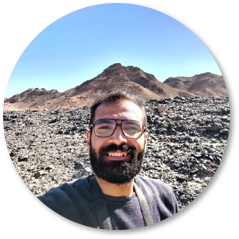
Sayed Mahmoud
Helwan University (Egypt)
E-Mail
Round 5 (01/2025-09/2025; at NRIAG, Cairo, Egypt)
https://orcid.org/0009-0005-3317-1476
Sayed M. Sayed is a geoscientist from Cairo, Egypt, with expertise in structural geology, remote sensing, petrological analysis, and geophysical data interpretation, particularly magnetic data and the anisotropy of magnetic susceptibility (AMS). His work focuses on integrating surface and subsurface datasets to address complex geological challenges using both traditional methods and advanced computational approaches. His current research explores the geometry and evolution of Neoproterozoic sedimentary basins and igneous bodies in the Eastern Desert of Egypt. By combining geological and geophysical data, he aims to uncover the formation history and resource potential of these ancient structures. As a contributor to the IHFC Global Heat Flow Fellowship, Sayed actively curates and analyzes datasets on thermal conductivity, geothermal gradients, and heat flow. His efforts support global initiatives in geothermal energy research and lithospheric studies to advance resource exploration and sustainable development. With a strong commitment to interdisciplinary collaboration, Sayed M. Sayed seeks to advance geoscience research and contribute to solving critical geological challenges through innovative approaches.

Moataz Ibrahim
National Research Institute of Astronomy and Geophysics (Egypt)
E-Mail
Round 5 (01/2025-09/2025; at NRIAG, Cairo, Egypt)
https://orcid.org/0009-0004-4736-7923
Moataz Sayed graduated from Helwan University in Cairo, Egypt, in 2012 and is currently pursuing a Ph.D. in Geophysics at the National Research Institute of Astronomy and Geophysics (NRIAG) in Cairo. Since 2013, he has been working as a researcher in the Geodynamic Department at NRIAG, specializing in gravity and geodynamics. His research focuses on developing a 3D crustal thickness model of Egypt by integrating satellite gravity data, seismic tomography, and magnetic data for geothermal applications. Moataz's work addresses key geophysical challenges, including the joint inversion of geophysical datasets to better delineate subsurface structures and assess geothermal potential. He has extensive experience in acquiring field data, processing, and interpreting gravity, seismic, and geodetic datasets. In addition to his research, Moataz has participated in international field schools and scientific missions in South Africa and France, where he gained hands-on experience with advanced geophysical tools and data processing techniques. His contributions include publishing articles on continuous gravity observations and 3D crustal density modeling in peer-reviewed journals.
Round 4:
In March 2024, we received eight applications from India, China, Nigeria; Mexico, USA, and Türkiye, two were awarded

Xiaoxue Jiang
China University of Petroleum (China)
E-Mail
Round 4 (09/2024-12/2024; at GFZ Potsdam, Germany)
Xiaoxue Jiang, hailing from China, holds a master's degree in Geological Resources and Geological Engineering from the China University of Petroleum (Beijing). During her master's studies, she focused on analyzing the characteristics of geothermal fields and investigating the mechanisms of heat enrichment in concentrated depressions. She also developed a numerical simulation method to assess the influence of the troposphere on surface heat flow. Currently, Xiaoxue is pursuing a PhD at the China University of Petroleum (Beijing). Her research interests encompass the geothermal characteristics and factors influencing heat flow distribution in the Bohai Bay Basin and Ordos Basin. Furthermore, she is exploring the mechanisms and potential for harnessing deep geothermal resources.
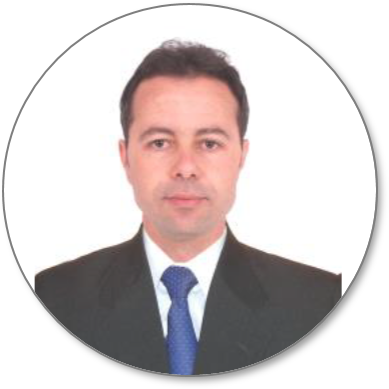
Dr. Abdelkader Ait Quali
Renewable Energy Research Center of Algiers (Algeria)
E-Mail
Round 4 (09/2024-12/2024; at Sorbonne University, Paris France)
http://orcid.org/0000-0003-1171-0553
Abdelkader AIT OUALI is a permanent researcher at the Renewable Energy Research Center of Algiers (CDER). He earned his PhD in Hydrogeology in September 2020 from the University of Science and Technology Houari Boumediene (USTHB) in Algiers, Algeria. He also holds a Master’s degree in Geology and a Magister’s degree in Hydrogeology. His primary research focuses on geothermal resource estimation, heat flow evaluation, and hydrothermal geochemistry. He has conducted extensive fieldwork and participated in numerous training programs at international institutions, including the Department of Earth Resources Engineering at Kyushu University in Fukuoka, Japan; the Center for Hydrogeology and Geothermics at the University of Neuchâtel, Switzerland; technical training on geothermal fields in Kenya by the Electricity Generating Company (KenGen) and the Geothermal Development Company (GDC); the EDYTEM Laboratory at the University of Savoie Mont Blanc, France; and the Geosciences and Environment Laboratory at Cergy University, Paris, France. Abdelkader is actively involved in international projects, including UNESCO’s "Geothermal Resources for Energy Transition" (IGCP 636) and the LEAP-RE initiative for Europe-Africa cooperation, which focuses on evaluating a geothermal atlas for Africa. He is also the author of several publications in geothermal energy and hydrogeology.
Round 3:
In September 2023; we received nine applications from Algeria, Nigeria, India, Tunisia, Colombia, Turkey, Djibouti, and Australia; three were awarded, two accepted.
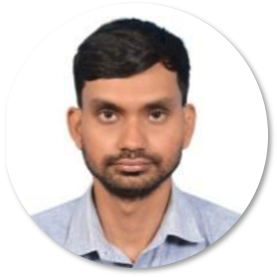
Ayan Dutta
CSIR-National Geophysical Research Institute (India)
E-Mail
Round 3 (03/2024-05/2024; at GFZ Potsdam, Germany)
Ayan Dutta is currently part of the Thermal Geophysics Group at the CSIR-National Geophysical Research Institute (NGRI) in Hyderabad, India. He holds a Master of Science in Applied Geology from Presidency University, Kolkata, India. His research interest include assessing heat flow, investigating the thermal characteristics of various rock formations, and exploring their implications for geological dynamics on a regional scale. He is also engaged in modeling the temperature distribution beneath the Earth’s surface. Ayan is involved in multiple projects aimed at determining the crustal thermal structure of various regions in India. His Ph.D. work is specifically focused on the Ladakh Himalayan Region, India.

Harold Buitrago
Centre for Scientific Research and Higher Education of Ensenada (Mexico/Colombia)
E-Mail
Round 3 (05/2024-07/2024; at GFZ Potsdam, Germany)
https://orcid.org/0000-0002-0592-0370
Harold Buitrago is a geologist with extensive professional experience in thermal modeling, focusing on geothermal gradients, heat flow, and the thermal properties of rocks. He earned a Bachelor of Science in Geology and a Master of Science in Geophysics from Universidad Nacional de Colombia. His master’s thesis introduced the first proposed lithospheric temperature structure for Central-Eastern Colombia, utilizing the finite difference method and incorporating oil and gas thermal data. In addition to his thermal modeling expertise, Harold has a strong background in petrophysics, gravimetry, magnetic data processing, and petroleum geology. He also taught Fundamentals of Geology at Universidad Nacional de Colombia for two years. Beyond academia, he created the YouTube channel Geología para Todos, which has garnered over 2,000 subscribers, sharing knowledge about geology with a broader audience. Currently, Harold is pursuing a Ph.D. at the Centre for Scientific Research and Higher Education of Ensenada. His research focuses on developing a thermal model for the Ringvent area in the Gulf of California. This work employs the Finite Elements method, integrating energy, mass, and momentum conservation laws to deepen understanding of geothermal dynamics in the region.
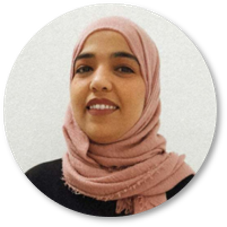
Insaf Mraidi
Faculty of Science of Tunis (Tunisia)
E-Mail
Round 3 (03/2024-08/2024; at University of Genoa (Italy) and GFZ Potsdam (Germany))
https://orcid.org/0000-0001-9301-3190
Was granted but withdrawn by candidate
Insaf Mraidi, a dedicated and passionate researcher from Tunisia, is committed to advancing knowledge in the field of heat flow and its diverse implications in geology, geophysics, and energy exploration. She earned her Ph.D. in April 2024 from the Faculty of Science of Tunis. Her doctoral research focused on calculating heat flow in the Gulf of Gabès-Gulf of Hammamet region, exploring the role of geodynamic evolution and its impact on oil potential. She also holds a master’s degree in Basin Analysis and Reservoir Characterization. Her research emphasizes updating Tunisia's heat flow database, which had remained unchanged since 1989. Insaf proposed innovative temperature correction methods tailored to the unique characteristics of Tunisian basins. Additionally, she introduced a new approach for calculating and evaluating thermal conductivity, implemented for the first time in Tunisia. Through her work, Insaf demonstrated that these novel methods effectively influence the understanding of the oil potential in the studied regions. Her contributions include new geothermal gradient, thermal conductivity, and heat flux maps, which were highlighted in her scientific publications.
Round 2:
In March 2023; we received six applications from Ethiopia, Algeria, India, Colombia, China, Nigeria; five were awarded
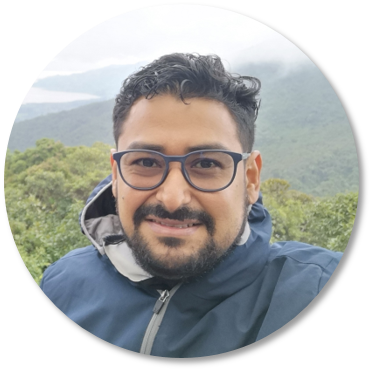
Jhon Camilo Matiz Leon
National University of Colombia (Colombia)
E-Mail 1, E-Mail 2
Round 2 (09/2023-11/2023; at Sorbonne University, France)
https://orcid.org/0000-0002-1885-9804
Geodesic Engineer and Master in Information Sciences and Geomatics from the Universidad Distrital Francisco José de Caldas. Postgraduate Fellow of the Geothermal Training Programme - GTP of the Center for Capacity, Development and Sustainability and Social Change - GRÓ of the Government of Iceland and UNESCO. Ph.D. student in Geosciences at the National University of Colombia.
His research work includes experience in the exploration of geothermal resources through 3D modeling and 3D litho-constrained stochastic geophysical inversion, absolute gravity, global navigation satellite systems, Geomatics and Geographic Information Systems (GIS), statistics and spatial analysis.
The main areas of interest are research and innovation of methodologies for the estimation and spatialization of geothermal gradient and heat flow, favorability zones through Paly Fairway Analysis, geomatics-geothermal integration (through the application of spatial information technologies), numerical modeling, 3D modeling, and 3D geophysical inversion for the exploration of geothermal resources in sedimentary and hydrothermal environments.
He's currently working as a researcher in 3D modeling, 3D litho-constrained stochastic geophysical inversion, absolute gravity, and Geomatics and GIS applied to geothermal exploration, in the Geothermal Research Group of the Colombian Geological Survey - SGC. Member of the Colombian Geothermal Association (AGEOCOL), a non-profit association of professionals, whose main objective is to promote the exploration, development, use, and exploitation of geothermal energy in Colombia.

Mohammed Hichem Bencharef
Echahid Cheikh Larbi Tebessi University (Algeria)
E-Mail
Round 2 (07/2023-09/2023; at GFZ Potsdam, Germany)
https://orcid.org/0000-0002-3058-3652
Mohammed Hichem Bencharef, originally from Algeria, is currently pursuing a Ph.D. in Applied Geophysics at Echahid Cheikh Larbi Tebessi University. He previously earned a master’s degree in Engineering Geology from Mohamed Seddik Benyahia Jijel University, where he built a solid foundation in geological principles and their practical applications. As a Ph.D. student, Mohammed is committed to advancing his expertise in geophysics, focusing on innovative approaches to studying heat flux. His academic pursuits have encompassed various aspects of geothermal energy, including heat transfer in porous media, rock mechanics, and geothermal exploration. A passionate and dedicated researcher, Mohammed is committed to contributing to the understanding of heat flux and its implications in fields ranging from geology and geophysics to energy exploration and climate science.
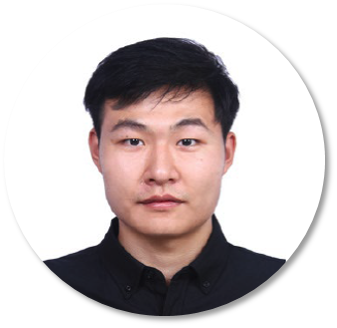
Yibo Wang
Chinese Academy of Sciences (China)
E-Mail
Round 2 (09/2023-12/2023; at University of Nanjing, China)
https://orcid.org/0000-0002-3035-7380
Yibo Wang, is a postdoctoral fellow at the Institute of Geology and Geophysics, Chinese Academy of Sciences (IGGCAS). He earned his Ph.D. in September 2020 from IGGCAS, specializing in structural geology with a focus on geothermics. Since 2015, Yibo has been engaged in research on heat flow, thermal structures, and thermal processes. His doctoral dissertation, titled Differences of Thermal Regime of the Cratons in Eastern China and Discussion of Its Deep Dynamic Mechanism, explores the variations in thermal regimes across Eastern China’s cratons and their underlying dynamic processes.
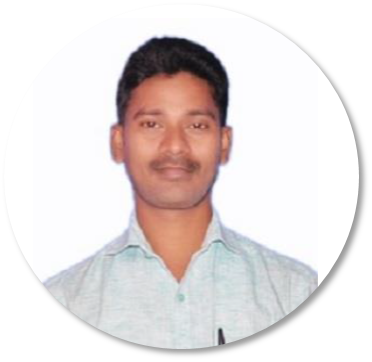
Eswara Rao Sidagam
CSIR-National Geophysical Research Institute (India)
E-Mail
Round 2 (07/2023-09/2023; at GFZ Potsdam, Germany)
https://orcid.org/0000-0001-9268-6123
Eswara Rao Sidagam is a researcher in the Thermal Geophysics Group at the CSIR-National Geophysical Research Institute (NGRI) in Hyderabad, India. He holds a Master of Science in Geophysics from Andhra University, India, and is currently pursuing a Ph.D. focusing on the thermophysical properties of major rock formations in the Western Himalaya region, India, and their implications for thermal modeling. He has participated in numerous geothermal field studies across India, collecting samples for thermophysical investigations and measuring borehole temperatures. His work includes laboratory measurements to determine the thermophysical properties and geochemical characterization of rocks using advanced equipment. Currently, he is engaged in thermal modeling of the subsurface temperature field.
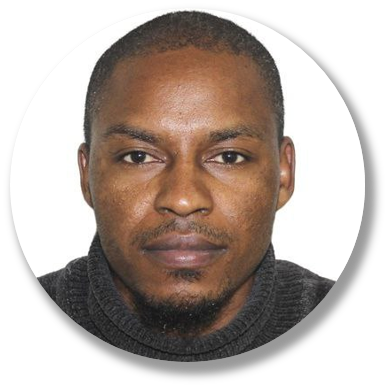
Belay Gulte Mino
Salale University (Ethiopia)
E-Mail
Round 2 (08/2023-10/2023; at University of Melbourne, Australia)
https://orcid.org/0000-0002-6289-4471
Belay Gulte Mino is a researcher and lecturer at Salale University in Ethiopia. He recently earned a master’s degree in Petroleum Engineering from Kazan (Volga Region) Federal University in Russia. Belay has experience teaching courses on energy and geothermal resources.
Round 1:
In September 2022; we received eight applications from Brazil, China, India, Mexico, and Turkey; three were awarded
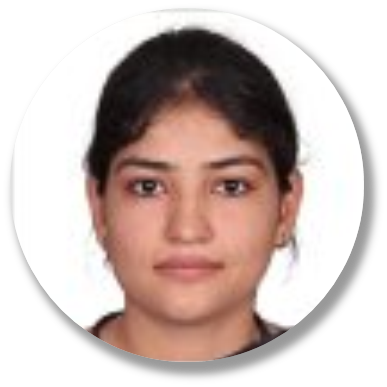
Nishu Chopra
CSIR-National Geophysical Research Institute (India)
E-Mail
Round 1 (04/2024-09/2024; at GFZ Potsdam, Germany)
https://orcid.org/0000-0001-7279-061X
Nishu Chopra is a researcher in the Thermal Geophysics Group at the CSIR-National Geophysical Research Institute (CSIR-NGRI) in Hyderabad, Telangana, India. She earned a master’s degree in Geophysics from Kurukshetra University, India, and a Ph.D. in Geophysics with a specialization in Thermal Geophysics from Andhra University, Visakhapatnam, India. Nishu Chopra has extensive experience working with continental geothermal data. Her research involves the acquisition, processing, modeling, and interpretation of heat flow, thermal conductivity, and heat production data to investigate the thermal structure of the lithosphere. She also has expertise in analyzing the thermal properties of crustal rocks at elevated temperatures.
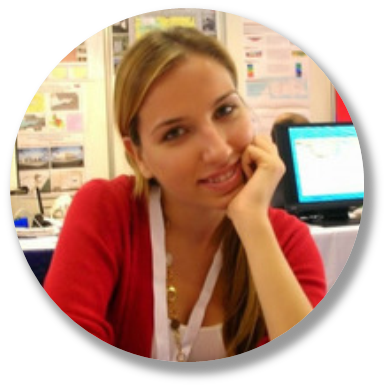
Elif Pazvantoğlu
Dokuz Eylül University (Turkey)
E-Mail
Round 1 (01/2023-04/2023; at GFZ Potsdam, Germany)
https://orcid.org/0000-0002-8117-4576
Elif Pazvantoğlu earned her Ph.D. in Geophysics in 2017 from Dokuz Eylül University. Since 2009, she has been involved as a research assistant in several national projects focused on studying the crustal thermal structure of the Anatolian Plate in Turkey. Her research interests include estimating heat flow, investigating the thermal properties of rocks, and exploring their implications for regional geodynamic processes. Additionally, she has a strong interest in numerical modeling of the subsurface temperature field.

Karina Fuentes Bustillos
CICESE (Mexico)
E-Mail
Round 1 (10/2022-01/2023; at GFZ Potsdam, Germany)
https://orcid.org/0000-0002-9638-5771
Karina Fuentes, originally from Mexico, is an enthusiastic and passionate scientist. She earned a degree in Environmental Sciences from UABC and a master’s degree in Earth Sciences from CICESE. Currently pursuing a Ph.D., her research focuses on studying the thermal state of the lithosphere in rift tectonic environments. This involves analyzing and modeling marine heat flow and other petrophysical measurements. Karina has also gained hands-on experience through direct acquisition of marine heat flow data during oceanographic campaigns, including two in the Gulf of California and one in Antarctica. These remarkable experiences have further fueled her passion for studying the dynamics of the ocean floor and the geological processes driving rift systems.